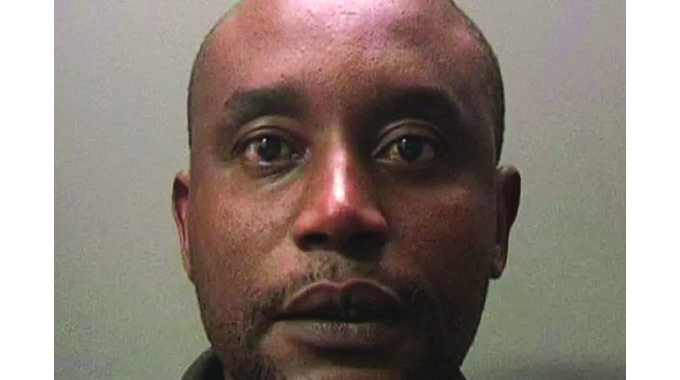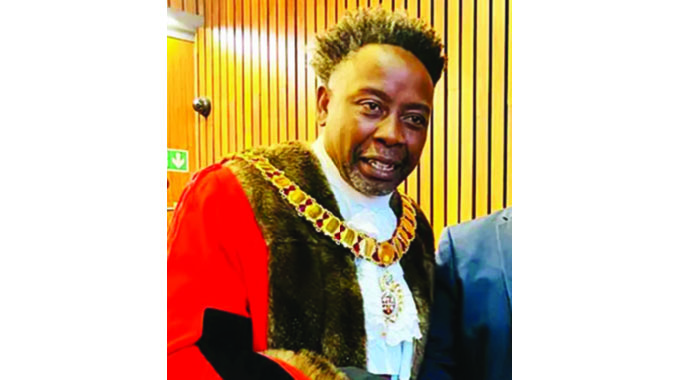Culture shock awaits children born in diaspora

Dr Masimba Mavaza and Lean Chachoka
Many Zimbabweans consider sending their kids back to Zimbabwe for cultural lessons, but with the way our culture is being eroded, the majority have been seriously disappointed.
Children who are born from parents who are immigrants are normally called third culture generation. They live a particularly interesting life growing up abroad in a culture different to that of their parents.
This experience is often very difficult to explain to those who haven’t been in this situation. These children have foreign citizenship, going to Zimbabwe with them will always bring some shocks to them.
At the airport they are asked to pay sixty pounds for a visa to visit their father’s land. They wonder why they should pay to enter their fathers’ country.
Kunashe, a 16-year-old said: “I felt lost, everybody called me ‘muBritish’ and others called me ‘mukaradhi’”.
She went on to say she felt lost and the word coloured was so insulting to her. In trying to learn Shona or isiNdebele, all the relatives were speaking to her in English. She left Zimbabwe without learning a single word in vernacular.
Are we Zimbabweans losing our culture and values due to Westernisation? It seems as if we value everything from the West more than our own.
Is modernisation ruining Zimbabwe? Has Western ideology highly influenced our cultural identity? Culture is the identity or feeling of belonging to a group. It is part of a person’s self-conception and self-perception and is related to nationality, ethnicity, religion, social class, generation, locality or any kind of social group that has its own distinct culture.
In this way, cultural identity is not only characteristic of the individual, but also of the culturally identical group of members sharing the same cultural identity or upbringing.
To be Zimbabwean, you must be identified with your culture. Culture is what makes us as who are we. Cultural (and ethnic) identity is a subset of the communication theory of identity that establishes four “frames of identity” that allow us to view how we build identity.
These frames include the personal, enactment of communication, relationship and communal. The communal frame refers to the cultural constraints or the sense of “right” that people live by (which varies by cultural group).
A tradition is a belief or behaviour passed down within a group or society with symbolic meaning or special significance with origins in the past. Common examples include social norms such as greetings.
Traditions can persist and evolve for thousands of years—the word tradition itself derives from the Latin “tradere” literally meaning to transmit, to hand over, to give for safekeeping. While it is commonly assumed that traditions have ancient history, many traditions have been invented on purpose, whether that be political or cultural, over short periods of time.
In local communities, and indeed throughout the world, people simultaneously operate in multiple spheres of knowledge in both purposeful and unintentional ways. While the binary positioning of “traditional”, “indigenous”, “Zimbabwean and modern”, “exogenous”, “Western” help us to understand these concepts in a pure and intelligible form these binaries are misleading in the concealment of the complex and ambivalent nature of people’s realities.
Particularly in a developing context, the history of colonisation and contemporary pressures of post-colonialism and globalization lead to interwoven cultures.
While it’s true that globalisation has taken its toll on the world, it continues to blend cultures together at an extraordinary rate, integrating customs, values and traditions.
In many parts of the world, this process has had a profoundly positive effect and eradicated some of the worst practices of racism, xenophobia and other injustices that have plagued the human race throughout history.
But with it, globalisation has also ushered in an era filled with lost culture and identity.
Sekuru Taruvinga of Kettering Northamptonshire lamented the erosion of culture in Zimbabwe. He was shocked by the words in the music played on our local radio stations. Sekuru Taruvinga said if a song is played on the national radio, it will appear as if it is normal to sing along and dance to profanity.
The move towards becoming a “modern” country, by benchmarking our progress against other nations, has led to the formation of a rapidly changing culture.
The by-product of that shift is that many citizens struggle to hold on to the values passed on to them by their parents, families and community. They undertake this struggle, while sometimes contradictory foreign values are being adopted from the media, expatriate colleagues, friends and society as a whole.
For those of us who have spent time abroad, the process is that little bit more difficult. Living on the fence, understanding the logic and benefits of both sides, the struggle is ongoing to identify ways to combine inherited and adopted values and put them into one identity.
So much so that many eventually end up lost or isolated. Yet, those who are fortunate enough to possess the knowledge and understanding of both local and foreign principles and values are in truth some of the greatest assets Zimbabwe possess today.
Lessons could have been taken from Oliver Mtukudzi. He created ambassadors who held Zimbabwean music high. He maintained his dignity and remained on top of his profession.
These ambassadors of progress fully understand their potential and the vital importance of their role as representatives of change and development.
They never cross the line of decency to gain fame. Not surprisingly, there are those who are resistant when it comes to the sensitive topic of change, and this is to be expected. Inch by inch, traditions and customs slowly fade away to make room for globalisation and it is only natural for people to oppose this change. But Zimbabwe has shocked even those who erode humanity as we know it.
Absolom Kunzwa from Liverpool said: “The force of globalisation is unstoppable and to resist it would be to live in denial. But a balance must be struck between the old and the new. That balance should be one that keeps an open mind to change and development, but also ensures the culture of Zimbabwe is at the heart of all plans mapped out for the country.
“An investment must be made that recognises those who hold the invaluable keys of the past and uniqueness of Zimbabwean culture in their hands, alongside citizens who have lived and fully understood and experienced foreign cultures.”
Mr Kunzwa said: “Rather than stumble into the trap that so many other countries have fallen into before – one that results in a loss of their own identity to make way for progress – a more balanced approach should be adopted, one that supports being conservative and progress at the same time.”
Mrs Marylyn Mavaza of Corby added: “A partnership must be built between both groups, allowing them to work side by side to map out the future of the country together, with the goal of having the Zimbabwe stand as one of the world’s great countries.
The preservation of our culture should be the foundation stone of this path, while it should also respect and value the diversity and advancement of other nations.”








Comments